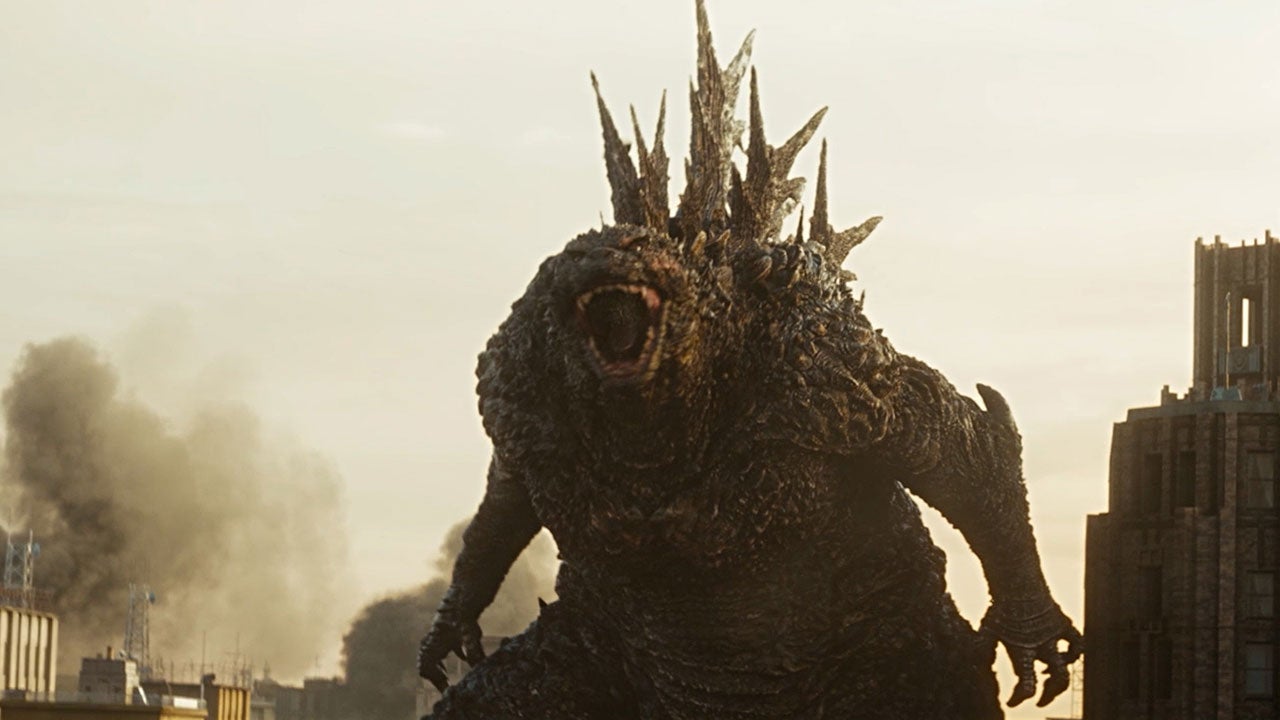
While the American Godzilla ongoing cinematic series continues to make the Japanese giant monster more palatable and simplistic for the American blockbuster-seeking audience, Toho seems to have a firmer grasp on how to continue with their notable film saga. They proved as much in 2016 with Shin Godzilla, a film that used the giant monster well in its theme of critiquing how bureaucracy handles disaster. They prove it again with Godzilla Minus One, a film that is even more superb for weaving Godzilla into a story about post-war Japan and survivor guilt.
Kōichi Shikishima was a kamikaze pilot during the final days of World War II but failed in his mission. He forcefully lands his plane on Odo Island, trying to make the case that there’s an error with his aircraft. Sōsaku Tachibana recognizes this cowardice and watches this survival instinct unfold even more when their base is under attack by Godzilla. Although the two survive this encounter, the rest of their military base does not. Shikishima attempts to go on living but finds it hard to rebuild a new life. Even with the presence of the surviving woman, Noriko, and her adopted daughter, Akiko, in his life, the war still hasn’t ended for Shikishima. How could it be when Godzilla is still out there?
After taking on a dangerous job getting rid of the mines from the war, Godzilla returns larger and more vicious than ever, ready to obliterate Japan. Still overwhelmed with the trauma of having lost his family in the war and wishing that he had died himself in battle, Shikishima finds himself struggling to accept this responsibility in a manner that won’t end his own life. He still feels he should perish, but the presence of Noriko and Akiko has given him something to live for. As Shikisima states throughout, his war isn’t over, and it’s not one with Godzilla.
Godzilla is more intimidating as a monstrous force representing something more than a giant monster tearing up Japan. In this story, he represents a distrust for how Japan will rebuild trust and value of life. Even after WWII, there is still bitterness in the people’s hearts. The crewman of Shikishima’s boat holds nothing back when talking openly about how poorly Japan treats emergencies and how they’ll often treat human life as a sacrifice despite the days of kamikaze pilots being over. This becomes very apparent when the mine-seeking boat is ordered to stall Godzilla while a battleship arrives late.
Of course, it wouldn’t be a Godzilla film without the titular monster bringing carnage to Japan, and he doesn’t disappoint. Some of the best scenes are when Godzilla is under the water, poking his head out of the water with his mouth agape, eager to sink his teeth into the next vessel. His city-stomping moment is brutal and chaotic, as he flings train cars and obliterates buildings, actively crushing people beneath his mighty feet. Godzilla’s trademark atomic breath is back once more, and it never fails to give me goosebumps, especially with the anticipation as the ridges on his back glow blue and shoot upward like pistons. It’s a fantastic build-up to some of the most intense explosions that assure the audience Godzilla will not be an ally.
Godzilla Minus One is one of the most compelling modern giant monster movies for being about something more than city-stomping chaos or fantastical wrestling matches. This is not to say that there isn’t some glee to be had in the simple thrills of watching Godzilla pound down on some other monsters, considering how many of those types of films Japan has made in the past. But between Shin Godzilla and Godzilla Minus One, Toho has better ideas on how best to use Godzilla for something more than mindless popcorn fun. All the fantastic sights and Godzilla hallmarks remain, but with something more to say about Japan and the world on a political and human level. While the human story tends to be weak in most Godzilla movies, it’s the best part of Godzilla Minus One while still featuring some of the most nail-biting Godzilla scenes of the 21st century.

 “Deadpool & Wolverine” Review
“Deadpool & Wolverine” Review  “The Boys: Season Four” Review
“The Boys: Season Four” Review  “The American Society of Magical Negroes” Review
“The American Society of Magical Negroes” Review  “Twisters” Review
“Twisters” Review  “Sausage Party: Foodtopia” Review
“Sausage Party: Foodtopia” Review  “Robot Dreams” Review
“Robot Dreams” Review  “Godzilla x Kong: The New Empire” Review
“Godzilla x Kong: The New Empire” Review  “Slave Play. Not a Movie. A Play.” Review
“Slave Play. Not a Movie. A Play.” Review 



